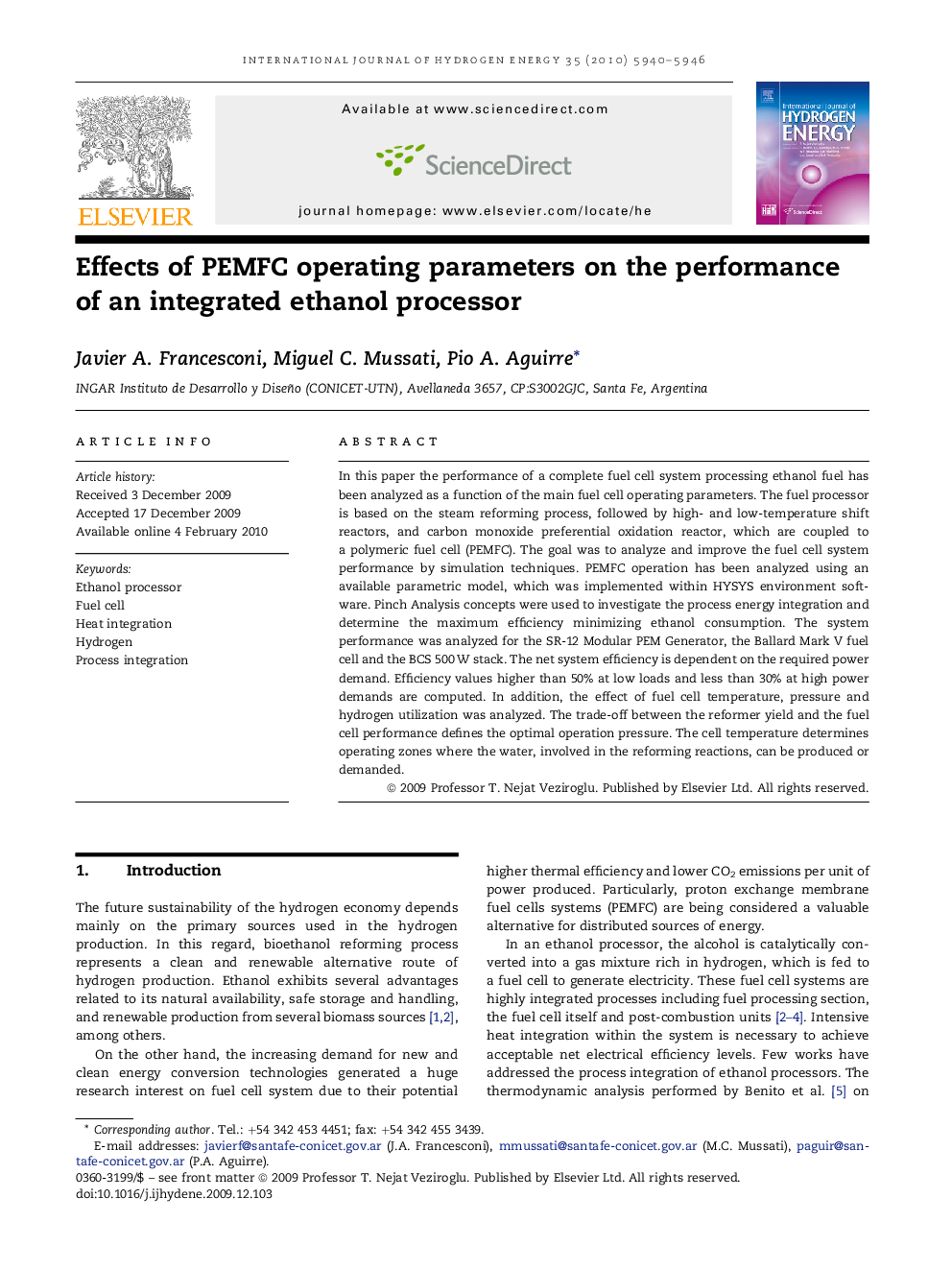| Article ID | Journal | Published Year | Pages | File Type |
|---|---|---|---|---|
| 1280632 | International Journal of Hydrogen Energy | 2010 | 7 Pages |
In this paper the performance of a complete fuel cell system processing ethanol fuel has been analyzed as a function of the main fuel cell operating parameters. The fuel processor is based on the steam reforming process, followed by high- and low-temperature shift reactors, and carbon monoxide preferential oxidation reactor, which are coupled to a polymeric fuel cell (PEMFC). The goal was to analyze and improve the fuel cell system performance by simulation techniques. PEMFC operation has been analyzed using an available parametric model, which was implemented within HYSYS environment software. Pinch Analysis concepts were used to investigate the process energy integration and determine the maximum efficiency minimizing ethanol consumption. The system performance was analyzed for the SR-12 Modular PEM Generator, the Ballard Mark V fuel cell and the BCS 500 W stack. The net system efficiency is dependent on the required power demand. Efficiency values higher than 50% at low loads and less than 30% at high power demands are computed. In addition, the effect of fuel cell temperature, pressure and hydrogen utilization was analyzed. The trade-off between the reformer yield and the fuel cell performance defines the optimal operation pressure. The cell temperature determines operating zones where the water, involved in the reforming reactions, can be produced or demanded.
